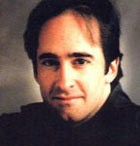|
|
|
[INDEX]
 On
the afternoon of Oct. 10, 2004, the Montreal Symphony Orchestra (MSO)
visited New York’s Carnegie Hall with a program of Russian choral
music, which they had performed in Montreal on Oct. 6 and Oct. 8, 2004,
to decent reviews. On
the afternoon of Oct. 10, 2004, the Montreal Symphony Orchestra (MSO)
visited New York’s Carnegie Hall with a program of Russian choral
music, which they had performed in Montreal on Oct. 6 and Oct. 8, 2004,
to decent reviews.
Much was riding on this performance. New York still has a bad taste in
its mouth from the MSO’s last concerts here (Oct. 26 and 27, 2002)
when they struggled through a program of Berlioz and Szymanowski under
two French conductors, the quite good Emmanuel Villaume and the rather
bad Michel Plasson. Those uneven concerts (reviewed
here) played to half-empty houses and garnered weak reviews, delivering
a serious blow to the MSO’s reputation, already hurt by the scandal
of long-time artistic director Charles Dutoit’s resignation in April
2002.
Canadians were shocked when Carnegie Hall did not invite the MSO back
in 2003, the first time in decades that it missed its annual fall slot
in the Big Apple. The official reason given by Carnegie was that the MSO
did not have a music director in place. That impediment was removed by
the MSO’s announcement in March 2004 that Kent Nagano would succeed
Dutoit as music director and principal conductor. So, even though Nagano
has had no influence on the band yet, and will not take up his duties
until the 2006-2007 season, the MSO was welcomed back to Carnegie Hall
on Sunday afternoon.
Fortunatelty, the MSO’s Russian program was well peformed and even
at times rousing – offering every hope the band is on the mend. The
concert’s highlight was Shostakovich’s The Execution of Stepan
Razin, Op. 119 (1964), a powerful piece of Soviet propaganda, buzzing
with dissident violins and snare drum marches reminiscent of the composer’s
Seventh Symphony. The text, describing the beheading of people’s
hero Razin, included campy class warfare images like fleas jumping from
the poor to the rich, and the severed head laughing at the Tsar. The solo
line was taken by bass Sergei Murzaev.
The program opened with Mussorgsky’s choral scenes The Destruction
of Sennacherib, the Temple Scene from Oedipus in Athens, and Joshua. These
Old Testament imprecations and prayers were delivered in harrowing tones
at deafening volume. The female vocal solo was soprano Tatiana Pavlovskaya.
Compared to the electrifying choral works by Mussorgsky and Shostakovich,
Rachmaninoff's The Bells (1913) came across as a diluted hybrid of impressionism
and academism. The musical tantrums seemed at odds with a verbose text
drawn from Poe which lacked any plot or narrative interest. The result
was "fort ennuyeux" as one Montreal critic put it.
The MSO Chorus was focused, with smooth dynamic variation, but their Russian
diction was soft and blurred, lacking the crispness of native singers
(such as we hear when the Kirov Opera comes to the Metropolitan Opera).
The concert was led authoritatively by American James Conlon, who will
replace Kent Nagano at the Los Angeles Opera, coincidentally.
It was odd that Maestro Nagano, the MSO’s putative saviour, was not
on hand to introduce his new band to New York (he was between performances
in Berlin with the Deutsches Symphonie-Orchester Berlin and the Staatskapelle
Berlin). Nevertheless, Conlon was smooth and masterful. One could not
have asked for better.
The hall was 80% full, and the concert was well received. There were no
encores.
Conlon’s new boss, L.A. Opera General Director Plácido Domingo,
was sitting in a loge, checking out the new talent. Also in the audience
was Quebec’s ex-premier Lucien Bouchard, newly elected chairman of
the MSO’s board of directors.
Political correctness demands: why did the MSO play no music by Canadian
or Quebecois composers? What’s up with the cultural policy of an
orchestra heavily subsidized by Quebec, yet which hires foreigners for
its top musical post, foreigners to lead its most prestigious concerts
abroad, and which programs no music of its own land? If Canadian orchestras
don’t hire Canadian musicians and play music by Canadian composers,
no one will.
> Carnegie Hall
[INDEX]

|
|
|

